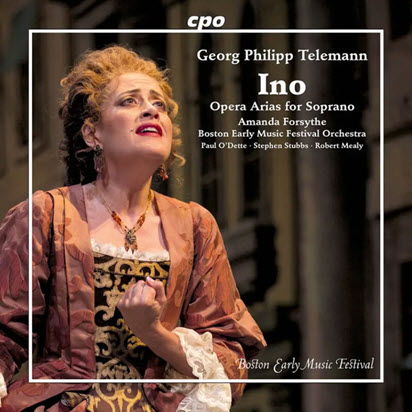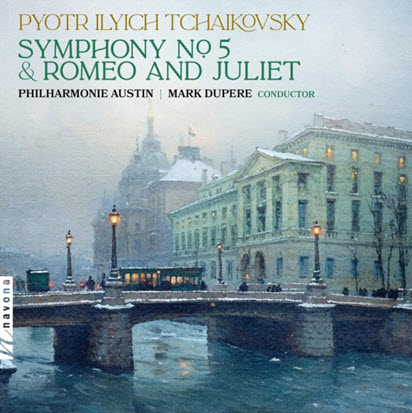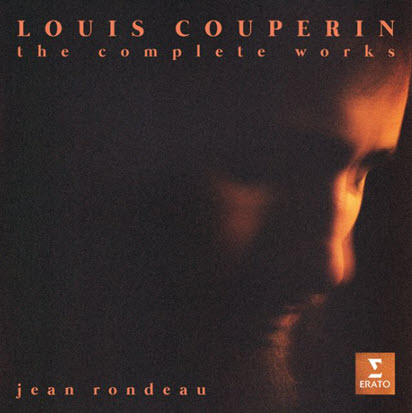by Aaron Keebaugh
Published June 20, 2025
Sky of my Heart. New York Polyphony and LeStrange Viols. BIS 2719
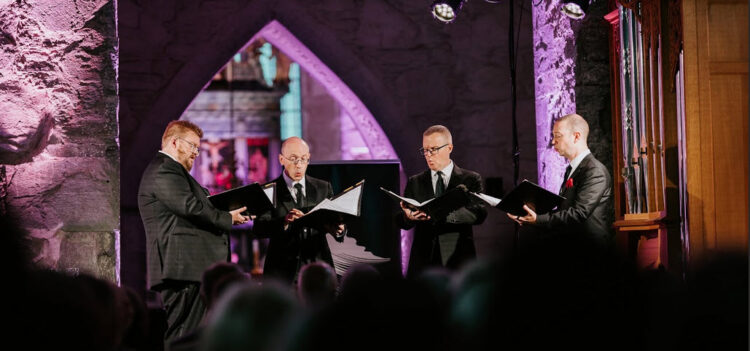
It begins with a single scratch, followed by another, and yet another. Bit by bit, the fragments, played by viols, form a texture that feels as prickly as pin cushions. Yet when the voices enter the music takes on sudden warmth, like a prayer sounding out from the chatter.
Composer Nico Muhly had Orlando Gibbons in mind when he composed these strains of My Day, a “ritualized memory piece” that commemorates the 400th anniversary of the English composer’s sudden death. But the text Muhly chooses invites broader interpretations between the wide worlds of 17th-century and contemporary music. Here Psalm texts work in tandem with excerpts from the report for Gibbons’ autopsy (he was rumored to have died from the plague). Muhly’s mosaic-like sonorities make it feel at once mysterious and familiar, and simultaneously ancient and new. Sensitively sung and played by vocal quartet New York Polyphony and LeStrange Viols, the music shakes loose any conventional sentiment in favor of laying the emotions bare.
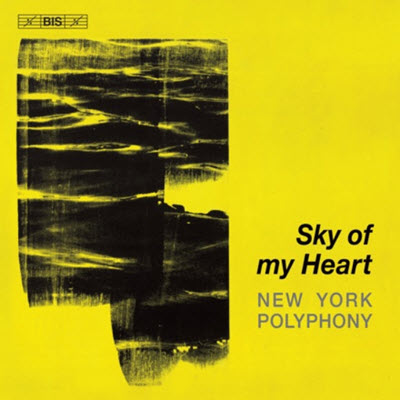
That’s the overall effect of Sky of my Heart, an album of mostly contemporary works that combine musical elements as disparate as Gregorian chant and brash dissonance. The ensembles, though known primarily for early music, render pieces by Father Ivan Moody, Becky McGlade, Andrew Smith, William Byrd, and Orlando Gibbons, and others with depth and serenity.
Father Moody worked closely with New York Polyphony prior to his passing in 2024. His Canticum Canticorum I, heard on this disc in honor of his memory, is a poignant expression of life and faith. The music eschews any traditional sense of long-range momentum in favor of subtle moments that pass by like rain on a window. Though firmly tonal, the harmonies “Surge propera amica mea” sting the ear. Dovetail voices likewise fan into biting dissonance in “Descendi in hortum meum.” Only in “Ego dilecto meo,” the final movement of the set, do Moody’s lines culminate in sweep motion.
By contrast, Becky McGlade’s Of the Father’s Love Begotten glows with hymnic reverence. New York Polyphony teases out the subtle surprises, like the sudden dips into foreign keys, as they spring up. But the singers’ supple blend generates tender warmth even as the lines coalesce in spiky harmonies.
Andrew Smith’s Katarsis, written in memory of the composer’s father, conveys all the rush of anguish in coming to terms with the death of a loved one. The piece opens gently. A single voice, reminiscent of chant, gradually flowers into resonances that encompass the full ensemble. From there, the music ebbs and flows in patterns that always feel immediate, plush in some moments, thorny in others. The effect feels like grieving itself, inviting listeners to sit with the uncomfortable moments before crying out suddenly.
Two short works by Paul Moravec offer stark contrast. Voices struggle to mix in The Last Invocation, like prayers struggling to be heard through the din. But they come together just enough in Darest Thou Now, O Soul to bring a sweet release from worldly cares. Ahemi Naito’s Tsuki no Waka likewise delivers moments of tension and solace, though not in a traditional building to the latter. Rather, these sensations push and pull against each other, the music never quite settling into an equilibrium. That effect is brought to an even sharper focus in The Lamb, John Tavener’s beloved carol. Voices sound as if from a distance even as dissonances tip the balance towards darkness. Through it all, New York Polyphony sings with stoic conviction.
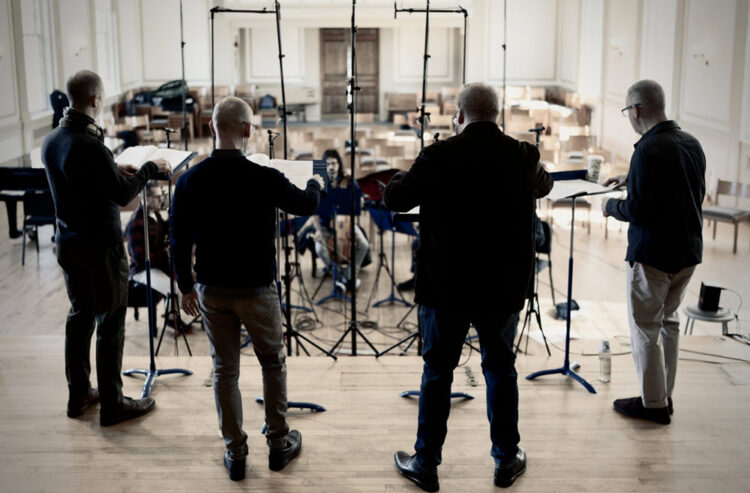
Bookending these performances are works by William Byrd and Orlando Gibbons that honor the anniversary of their deaths. Byrd’s Ecce quam bonum, drawn from the first book of the Gradualia (a volume of liturgical music intended for secret use by persecuted Catholics in England), flashes sonically with silver and light. The singers weave their lines together without sacrificing individuality. Phrases routinely rise out of the texture to take the limelight before sinking back into the mix.
Gibbon’s The Silver Swan provides a supple counterweight. After the viols establish a warm tone, the singers stack their voices in blocks of sound that throb gently. Here, again, the music invites us to sit with an uncomfortable reality as the closing lines express as much shock as unfortunate certainty: “More geese than swans now live, more fools than wise.” In sound as well as sentiment, the phrase is just as fitting for our own time.
Aaron Keebaugh is a musicologist, critic, and writer whose work has appeared in The Musical Times, Corymbus, The Classical Review, The Boston Musical Intelligencer, and The Arts Fuse.

